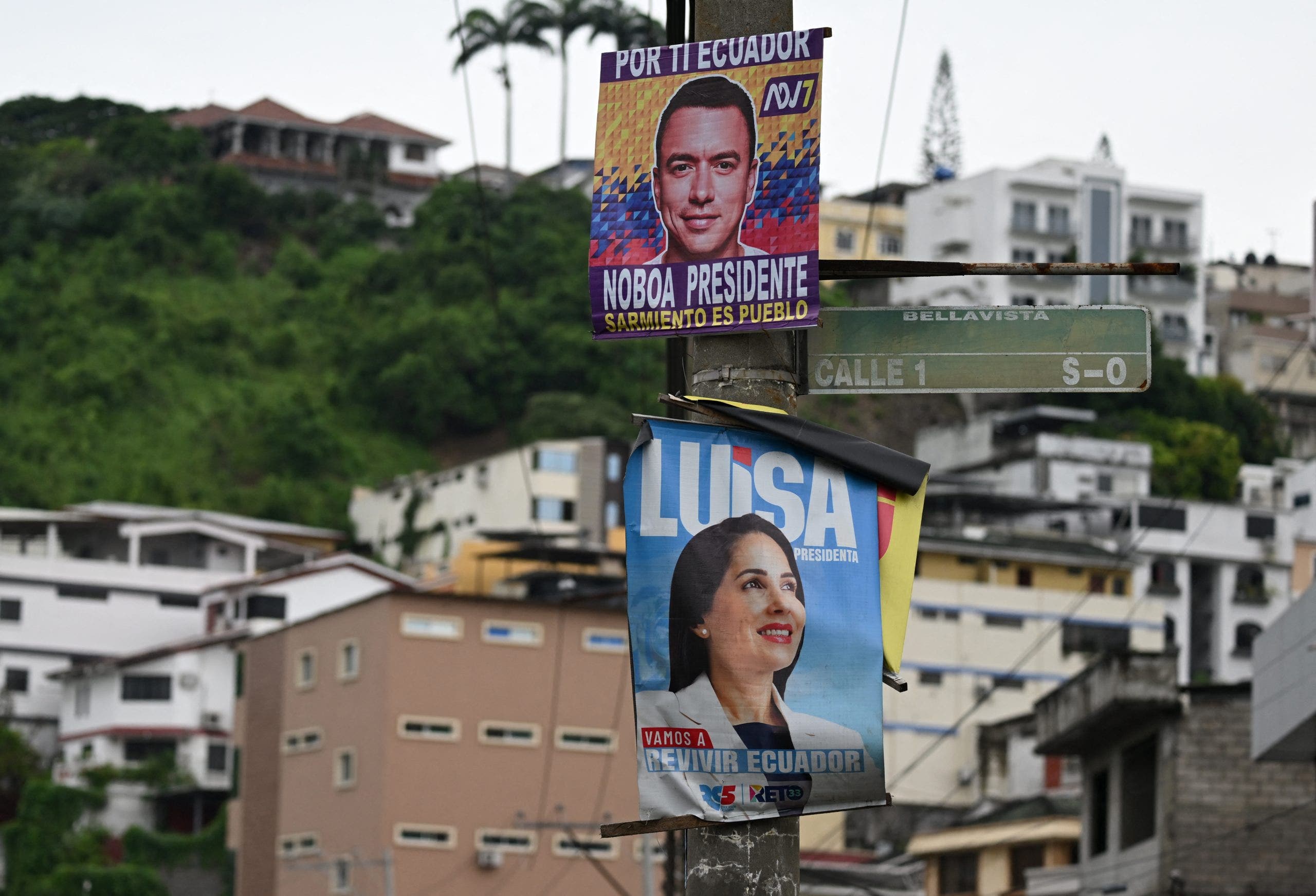Ecuadorians go to polls as a wave of violence plagues country

Ecuadorians head to the polls today in a crucial runoff election between incumbent President Daniel Noboa and leftist challenger Luisa González. The stakes are high, with Noboa representing a pro-Trump conservative stance, while González is seen as an ally of Venezuelan dictator Nicolás Maduro.
Noboa has made security a top priority during his time in office, vowing to combat criminal gangs and restore peace and stability in Ecuador. He has refused to recognize Maduro as the legitimate president of Venezuela and has taken a tough stance against organized crime. However, experts believe that there have only been marginal improvements in the security situation under Noboa’s leadership.
On the other hand, González, a protege of former President Rafael Correa, has promised to increase the military’s role in fighting gang violence but has also emphasized the importance of respecting human rights and avoiding excessive use of force. She is expected to follow a policy of negotiation with criminal gangs, similar to that of the Correa administration, which focuses on integrating gangs into civil society.
Violence and insecurity remain major concerns for voters in Ecuador, with the country experiencing a high murder rate and escalating gang violence. Noboa declared an internal armed conflict in 2024 and called on the armed forces to take action against criminal organizations. He has also sought international assistance, including partnering with private security firms like Blackwater founder Erik Prince, to combat narcoterrorism.
Despite these efforts, the violence has continued to escalate, with January 2025 being the most violent month in recent history. Ecuador has become a significant drug trafficking hub, with various criminal organizations operating throughout the country. The upcoming election will determine the country’s future trajectory in addressing these challenges.
Noboa and González each received around 44% of the vote in the first round of the election, setting the stage for a closely contested runoff. If González wins, Ecuador could see a return to the leftist economic policies of the Correa presidency. However, whoever wins will face the challenge of governing with a divided National Assembly, making it difficult to pass legislation to address the country’s security and economic issues.
Experts agree that a comprehensive strategy to combat gang violence, strengthen institutions, and root out corruption is essential for Ecuador’s future stability. Noboa’s close ties to President Trump could potentially help him address the country’s security challenges if he wins the election. The outcome of the runoff election will have far-reaching implications for Ecuador’s future direction and its ability to tackle the pressing issues facing the country.




